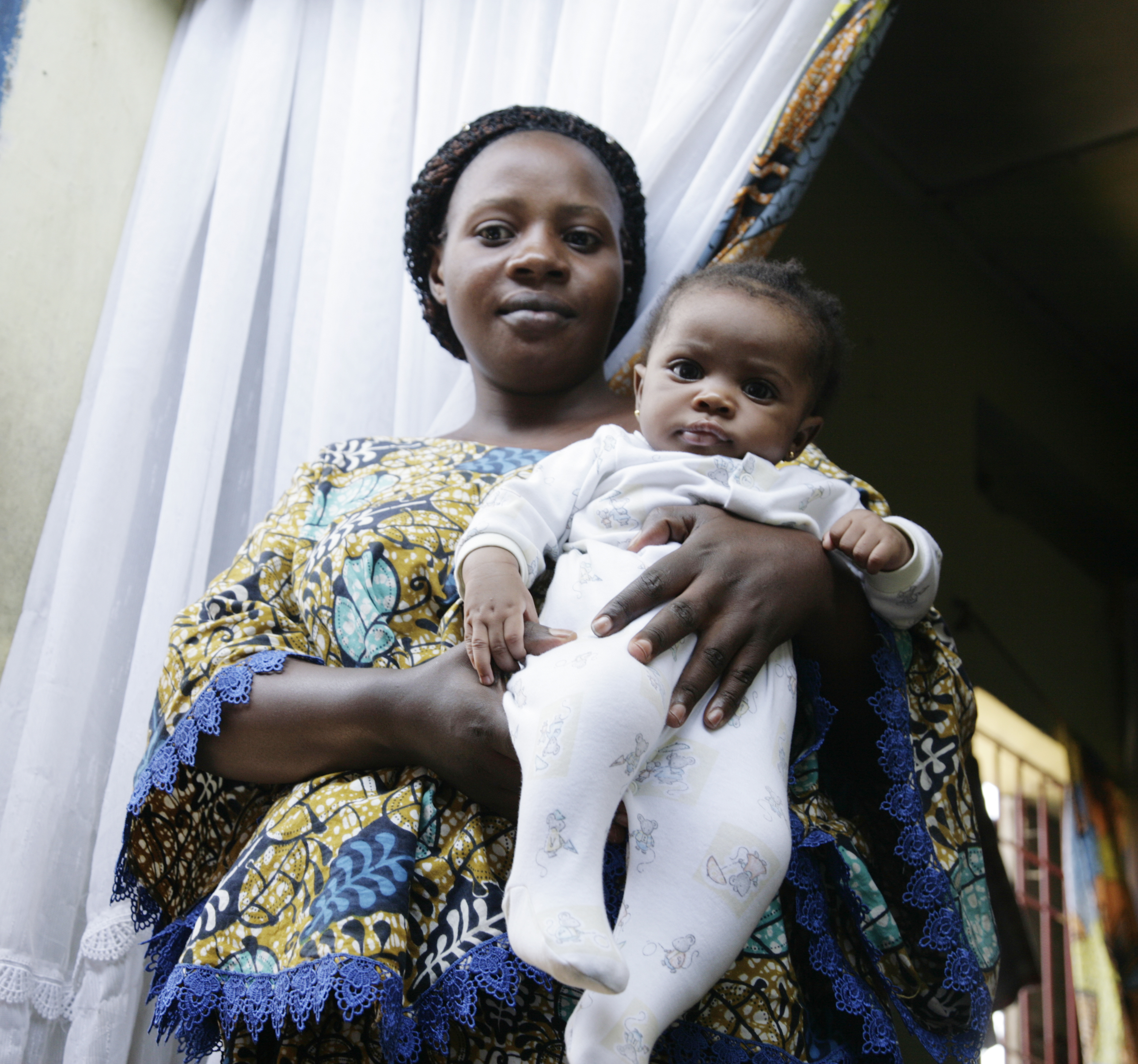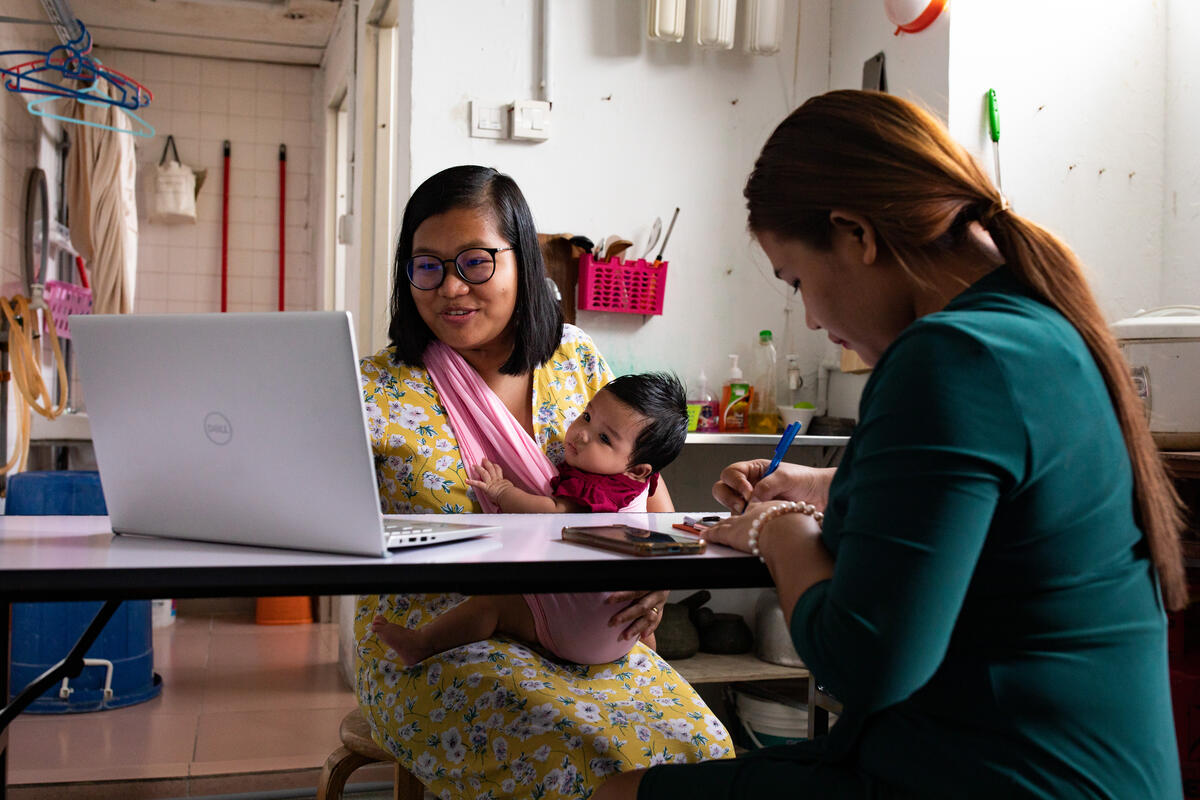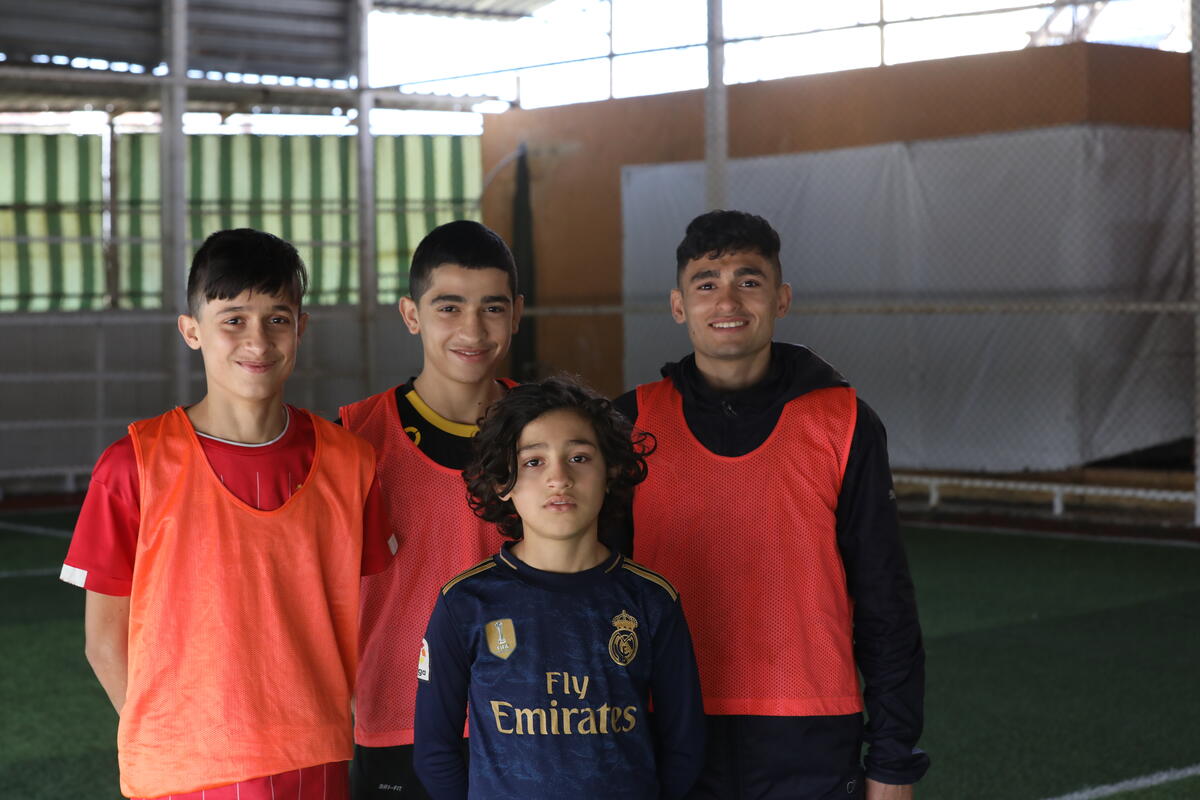Just US$30 a month buys innovative health care for Kinshasa refugee families
Just US$30 a month buys innovative health care for Kinshasa refugee families

KINSHASA, Democratic Republic of the Congo, December 24 (UNHCR) - About to give birth to her first child, Clementine Uwimana, a 30-year-old Rwandan refugee walked to the nearest hospital, just five minutes from her home in the Congolese capital. But when complications meant she had to head to a major referral hospital, St. Joseph, for a Caesarean section, she didn't hesitate to jump in a taxi, because she had health insurance.
"If it was not for the heath insurance I get from UNHCR, I could have died that night as I did not have any money," Clementine said later, cuddling her baby, Malaika - named after the UNHCR community services assistant who had helped her through every step of her pregnancy after her boyfriend deserted her.
In what may be the only scheme of its kind in the world, close to 1,500 refugees in Kinshasa are covered by a health care plan administered by the Bureau Diocésain des Ouvres Médicales, or BDOM. Under the plan, set up in 1978, and now covering some 2 million people, or about one-fifth of Kinshasa's population, UNHCR pays US$30 a month for each refugee family, up to seven or eight people.
UNHCR joined the BDOM system this year after a thorough evaluation of refugees' complaints about the quality of medical services they had been getting. Now, for US$6,000 a month, UNHCR is able to provide medical insurance for 1,444 refugees in the Democratic Republic of the Congo capital.

"Now that half of all refugees are living in cities, we are having to look at more innovative ways of delivering services to them," said Paul Spiegel, head of UNHCR's Public Health and HIV Section. "The health insurance programme in Kinshasa may be one example we will want to consider duplicating for refugees in other major cities."
For Clementine, not having to worry about her health is a major relief, after having fled genocide in her homeland, Rwanda, in 1994. Her parents were killed and, at the age of just 15, she had to become a mother to her four younger brothers in exile. Thanks to UNHCR education and health care programmes, and her own hard work, she said, "I struggle less."
Like Clementine, refugees in Kinshasa are assigned to health centres near their homes for primary care and can be referred to St. Joseph for more complicated treatment.

A doctor at St. Joseph, Thierry Bankanda, observed that "with the new system, refugees are more satisfied to receive medical treatment as it is more efficient, with less bureaucracy and more focus on the health of the patients."
He added that the health insurance makes it easier for the hospital to handle refugees and "refugees don't feel discriminated [against] in comparison with the Congolese when they come to the hospital to receive treatment. They enjoy the same rights."
The pay-off has been profound for 41-year-old Lusilaho Pascal, a refugee from the Republic of Congo for 10 years, who moved from a refugee camp to the capital in search of proper treatment for his diabetes.
At first he wondered whether he was any better off, as he spent two hours every day getting to hospital, with all his money going on transport. Now the BDOM-covered health centre is within easy reach, his diabetes is controlled by medication, and his condition has improved remarkably.
"The health centre where I am going now is very near my house, only 10 minutes on foot," said Lusilaho, who takes a pill every day after breakfast. "I don't feel discriminated against at the hospital - I am treated like the Congolese in terms of service received. Now my life has completely changed."
By Francesca Fontanini in Kinshasa, Democratic Republic of the Congo








